2017 will mark the 10th anniversary of the iPhone and Apple has something major planned to celebrate the occasion. With less than a month to go until the launch of the iPhone 8, we've already heard an abundance of rumors about the device, so we know what to expect when it comes to design and features.
Apple tested more than 10 prototype iPhone models, leading to a lot of mixed rumors floating around, but the general design and the features we can expect have mostly been nailed down, including in leaks from Apple itself.
The iPhone 8 is expected to feature a radical redesign, with an edge-to-edge display that does away with the top and bottom bezels where features like the Touch ID fingerprint sensor and the front-facing camera are housed. Rumors suggest Touch ID could be eliminated entirely in favor of robust facial recognition technology, which Apple is confirmed to be working on. There will be no physical Home button on the iPhone 8 and no bezels aside from a small area for the front-facing camera.
With an edge-to-edge design, the iPhone 8 may be similar in size to the 4.7-inch iPhone, but with a display the size of the 5.5-inch iPhone. Rumors suggest it will feature a 5.8-inch display with 5.15 inches of usable area, with the rest dedicated to virtual space that will replace the Home button. A series of gestures may be used to navigate instead of a Home button.
The display itself is said to be a flexible plastic OLED rather than an LCD, allowing Apple to introduce a thinner device that consumes less power and offers a better display with higher contrast ratio and more true to life colors. It will feature a slightly curved 2.5D display that's similar to the display used in the iPhone 7.
As for the body, Apple is finally moving away from the aluminum used in the iPhone 5, 5s, 6, 6s, 7, and SE, and will instead adopt a glass body that's similar to the body that was used for the iPhone 4. According to analyst Ming-Chi Kuo, the glass will be built around a polished stainless steel frame that's similar in design to the Apple Watch. Other models will also feature glass, but with an aluminum frame.
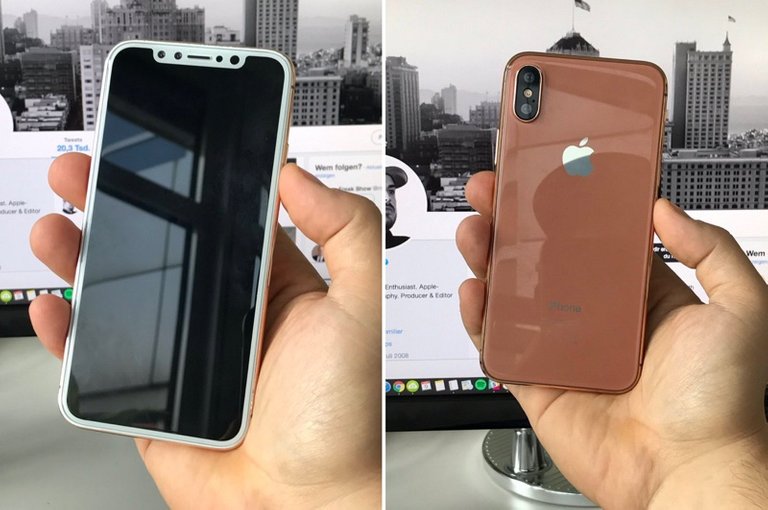
"iPhone 8" dummy model image shared by Ben Miller
Like the iPhone 7, the iPhone 8 is expected to be water resistant, but it may have an improved IP68 water resistance rating. It will continue to be able to hold up to rain, splashes, and brief submersion in water, and that water resistance has been confirmed by an Apple supplier and may extend to all iPhone models being released in 2017.
Inside, the iPhone 8 is expected to have a 10-nanometer A11 chip that will be both faster and more efficient, plus rumors suggest it could also include features like induction-based wireless charging and biometric additions like facial recognition that would be used for device security, perhaps to replace Touch ID. In higher-end models with a dual-lens camera, both lenses are expected to feature optical image stabilization.
The iPhone 8's front-facing camera will include advanced 3D sensing capabilities that use technology by PrimeSense, allowing it to find the location and depth of objects in front of it, enabling advanced 3D facial recognition features. Rumors suggest Apple will use a vertical rear camera for improved pictures and better AR functionality, along with a dual-camera setup for the front-facing FaceTime camera.
Apple is said to be planning to position the OLED iPhone 8 as a ~5-inch "premium" model that will be sold alongside standard 4.7 and 5.5-inch iPhone models with traditional LCD screens. The iPhone 8 is expected to cost as much as $1,000, which is a good deal more expensive than previous iPhones. The iPhone 8 and its companion devices are expected to be available in a limited number of colors -- gold, silver, and black.
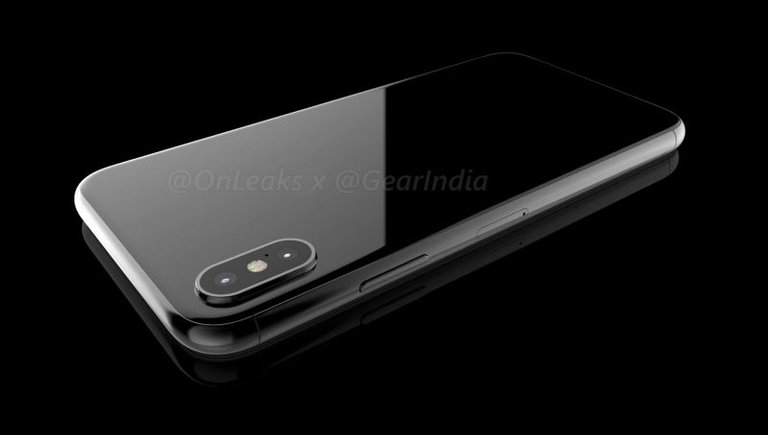
"iPhone 8" rendering said to be based on leaked CAD drawings
Given the radical design changes Apple plans to introduce in the OLED iPhone, rumors have been suggesting there will be serious supply constraints. Apple will introduce the 5.8-inch OLED iPhone at a September 12 event alongside the standard 4.7 and 5.5-inch devices, but it's likely to only available in small numbers, with the majority of people unable to get their hands on the new device until the first quarter of 2018.
Schematics, Design Leaks, and Cases
Early on, we saw several different design prototypes for the iPhone 8 that made it difficult to suss out both the final look and the features we can expect, but both later leaks and information accidentally shared by Apple have given us a pretty clear picture of what to expect. Originally, there were rumors about prototypes featuring a water drop design, a rear Touch ID button, and an edge-to-edge design with no Touch ID button at all, but it appears the third option won out.
Apple in late July released firmware for the upcoming HomePod speaker and inadvertently released an image of the iPhone 8 that developers dug out of the code. Though just a simple outline, The image heavily resembles leaked iPhone 8 parts and design schematics, featuring full-front display with thin bezels, no Home button, and a notch at the top for the earpiece and sensors
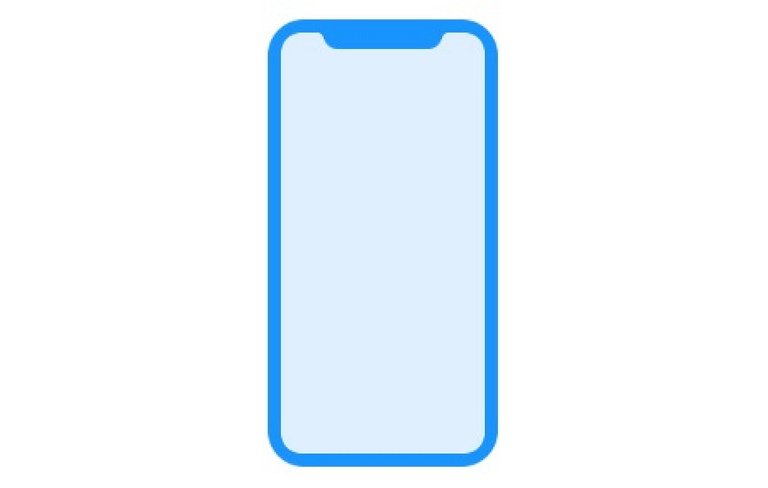
Given that the image looks both nothing like existing devices and so much like iPhone 8 leaks, it's reasonable to assume that this is indeed representative of what we can expect to see in September when the device launches. We've seen many clearer schematics, renderings, dummy devices, and part leaks that give a clearer picture of what the iPhone 8 will look like, with those images available below. Much of this information has come from sources within Apple, supply chain leaks, and accessory makers that use leaks to build early versions of iPhone cases.
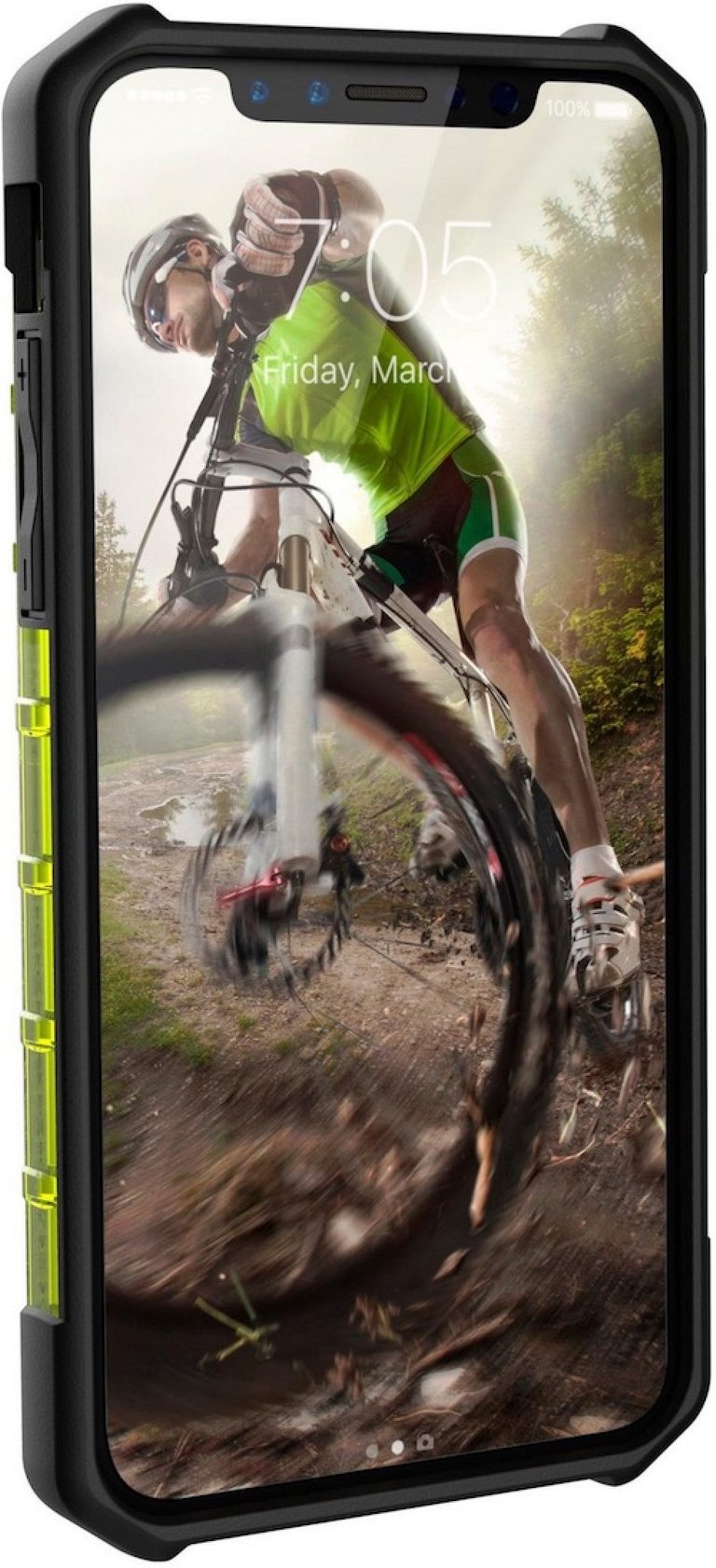
A rendering of an iPhone 8 in a case, showing off what is likely to be the final design of the device.
As outlined above, the iPhone 8 is expected to feature an edge-to-edge display, a glass body, and no visible Touch ID button anywhere on the device, pointing towards an iPhone 8 with Touch ID located under the display or no Touch ID functionality at all, as can be seen in the rendering below. The rendering is based on leaked schematics that suggest it will measure in at 137.54mm tall by 67.54mm wide, similar in size to the iPhone 7.
Thickness is not shown, but there's a nearly edge-to-edge display that measures 5.767 inches on the diagonal. A 4mm bezel is pictured around the display, with half of that being the 2.5D curved glass at the edges. All of this is in line with rumors suggesting an iPhone 7-sized device with an iPhone 7 Plus-sized display.
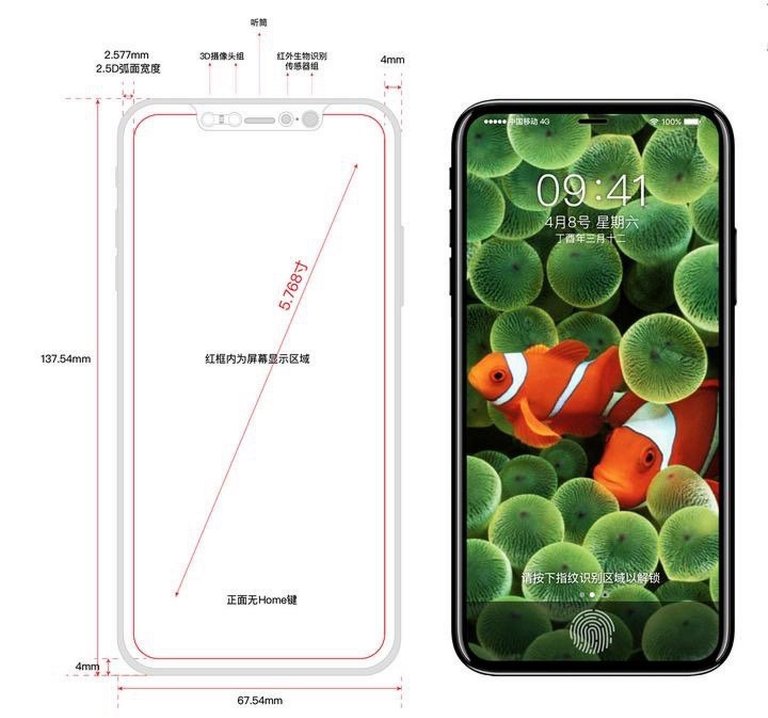
A narrow earpiece is depicted on the front of the device alongside cameras and sensors that appear to be embedded in the display area. There is no Home button and no visible Touch ID sensor.
An image of an iPhone 8 dummy model sourced from Chinese social networks features front and rear panels made from slightly curved 2.5D glass held together with a stainless steel frame that matches the glass back.
The dummy iPhone 8 also includes an edge-to-edge screen with no Home button and a visible notch cut out of the front to house a camera and other sensors. At the rear of the device, there's a vertical dual-lens camera with no other markings. There is no rear Touch ID sensor nor an Apple logo.
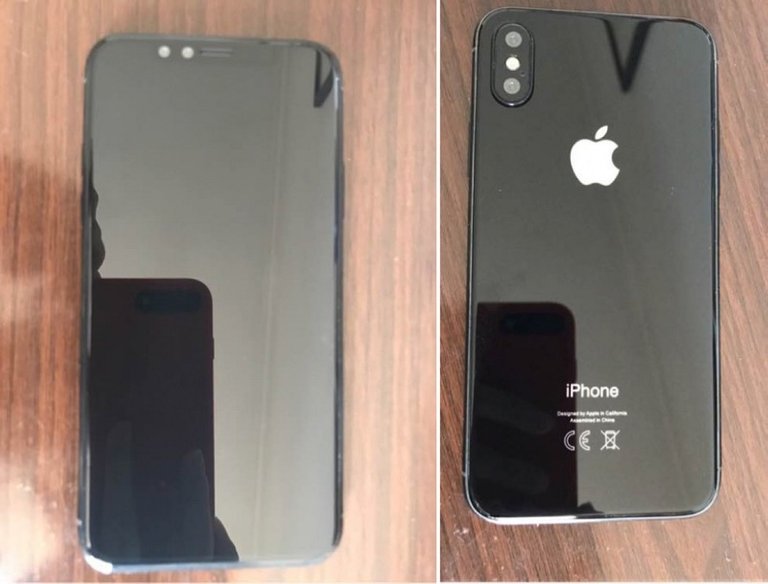
At the sides, though not visible, there are volume buttons and a mute switch on the left, with an elongated power button and a SIM tray on the right.
We went hands-on with an iPhone 8 dummy model and compared it with an iPhone 7, iPhone 7 Plus, and iPhone 8 to get a closer look on what the device will look like in comparison with existing devices. We can't confirm for sure that this is the final design, but we believe it's likely to be as these dummies are used by accessory makers and are very often spot on.
Schematics "based on blueprints" that allegedly give a look at the sensors located under the display and inside the device have also leaked. At the top of the device, there's an embedded camera, flash, and ambient light sensors, all designed to power a new facial recognition system Apple is working on.
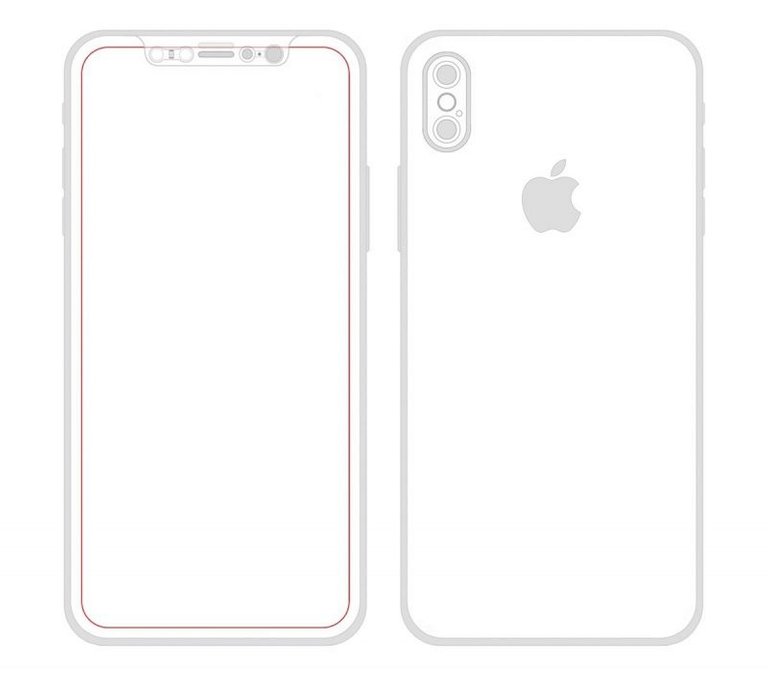
Additional images said to be sourced from a Foxconn employee appear to show off the internal structure of the device, depicting internal components like a wireless charging coil, a dual rear camera module, an L-shaped battery, and a stacked logic board design, with the latter two features suggesting better battery life.
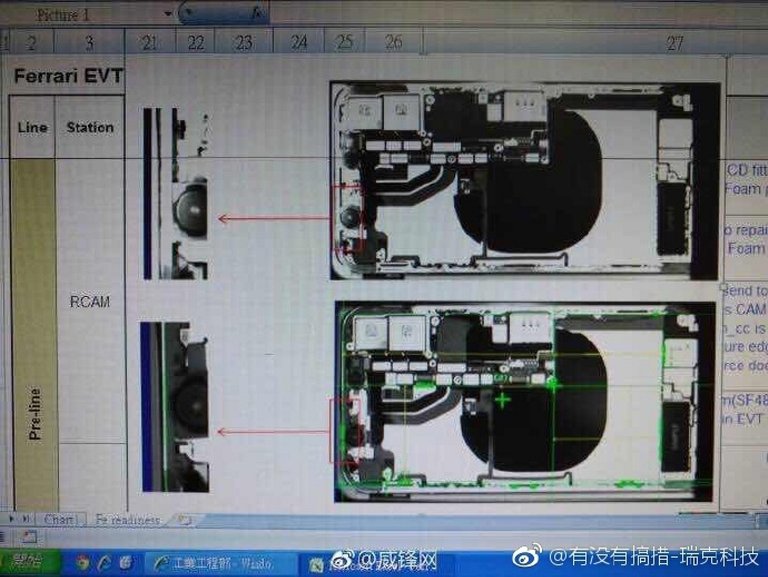
Our first glimpse of components that could be destined for the iPhone 8 surfaced in mid-June. The images, said to be sourced from a case manufacturer who received them from a glass supplier in China, depict what is said to be the front and back panels of the iPhone 8.
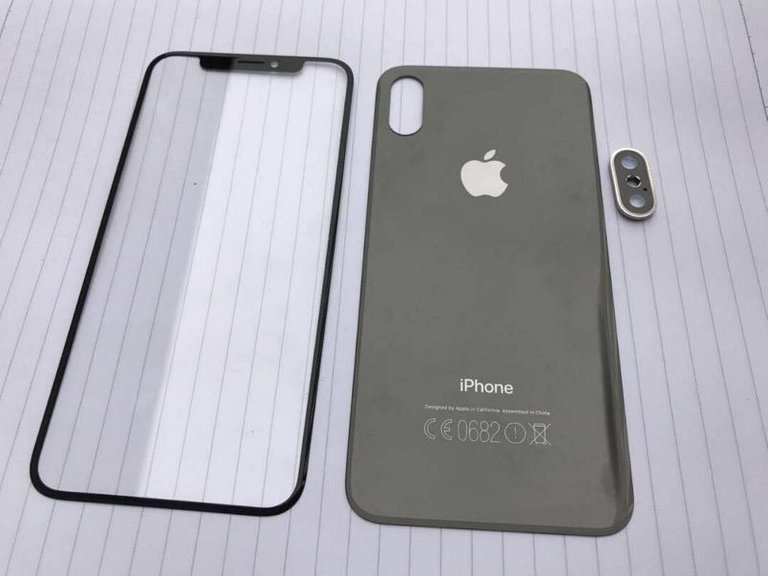
Hi! I am a robot. I just upvoted you! I found similar content that readers might be interested in:
https://www.macrumors.com/roundup/iphone-8/